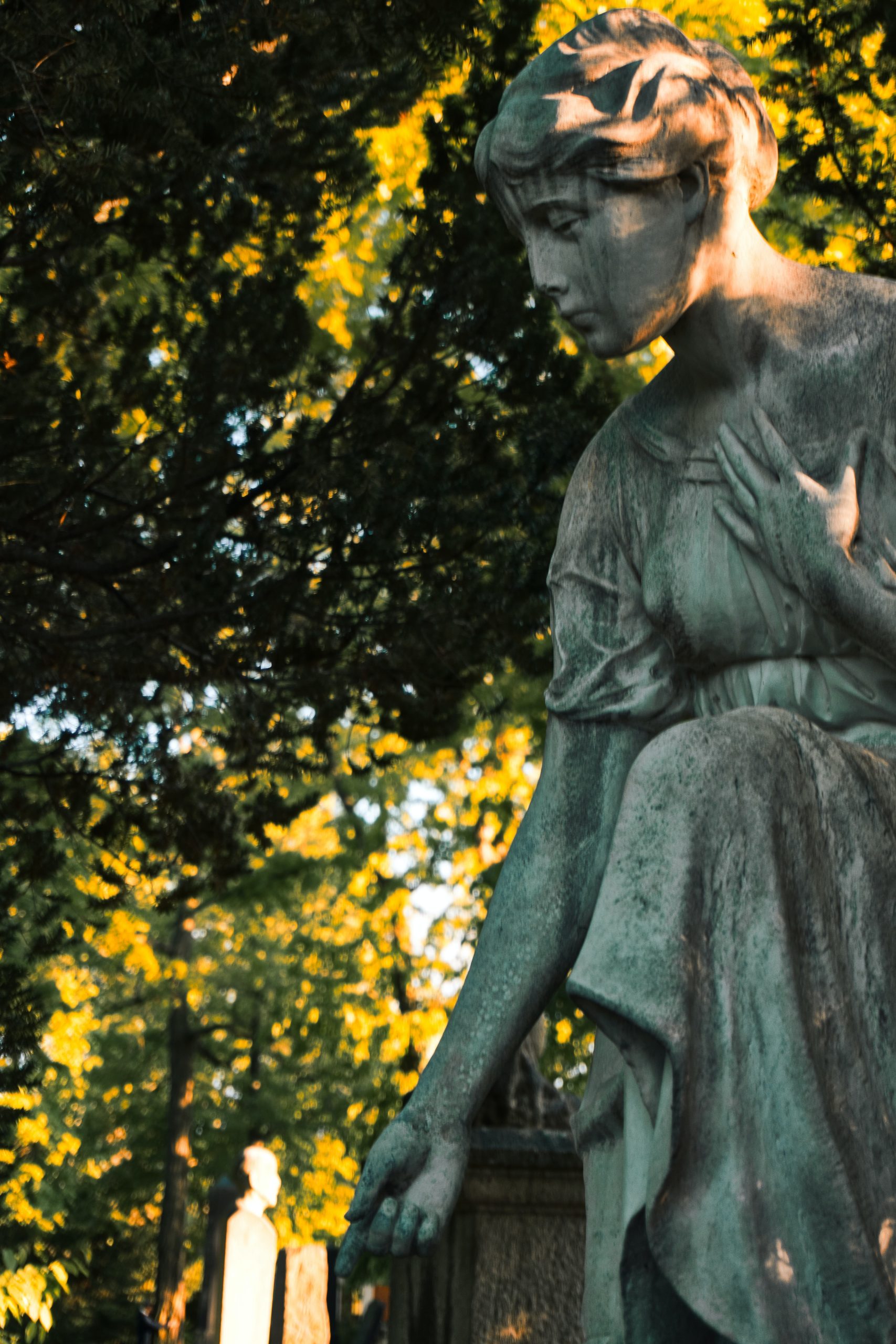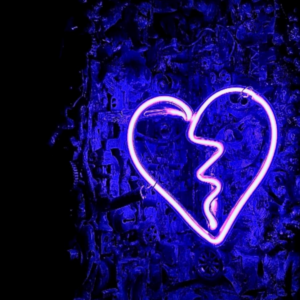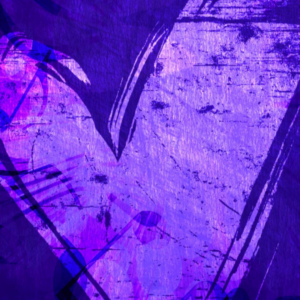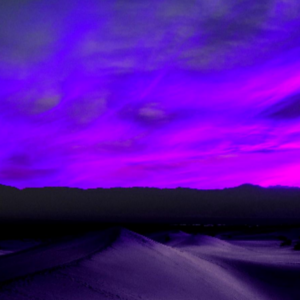First Place Winner of the 2020 Voyage YA Short Story Award judged by Natalia Sylvester, author of the YA novel, Running
.
“Do you remember the old world?” Grammy asks me. Her bony hand is a cage around mine, squeezing too hard as she stares off the path. “We used to eat creatures like that.”
She’s looking at Protected Life. The animal is knee-high, bristling with stark white feathers and a silken sickle tail. It watches us through the fence, cooing from low in its belly. It reminds me of the bird stamped on the corrugated tin wall of our bunker, peeling letters spelling out the phoenix project under upswept white wings.
I never knew the old world. But I feel a little sick remembering Grammy’s stories: of feathered bodies torn apart, fried, dissected with teeth and fingertips.
The bird cocks its head, its fierce black eyes fixed on Grammy like it knows exactly what she’s thinking. It looks harmless to her, but I can see what she can’t—the spear of the beak, the powerful legs, the long yellow talons gouged into the dirt. Just like me, it comes from Survivor stock. Just like me, it carries the blood of those who refused to die.
I tug on Grammy’s hand. “Come on. We don’t want to be late for the ceremony.”
“So serious, Tana.” She clicks her tongue, pulls her worn jacket tight around her thin dress. “It’s not right for a girl of sixteen. You should be living your life. Not…this.”
I bite my tongue so hard it bleeds to keep from saying the words that jump into my mouth. This is life. This is the world of the living. You’re the one who lives with the corpses and the ghosts.
My parents taught me to respect other people’s stories. But Grammy only tells one kind of story. She speaks of a world where people lived anywhere and everywhere, crawling over every corner of the planet, creating a thousand new things just for the pleasure of having them and discarding them, and reveling in everything the Earth could give them—disposable land, disposable animals, disposable goods, even disposable people. She speaks of the days of the Hoarding with a rare sparkle in her eye, like they are the happiest of her life.
It makes the acid churn in my gut to listen without passing judgment.
She doesn’t talk about the Resource Wars. She doesn’t talk about the Sun Rot. She doesn’t talk about the Seeds of Humanity movement: an agreement that the greatest threat to the world was the Hoarding. We had to give up that we were to become something more. Now everyone who’s left, lives in places like The Phoenix Project, tall metal and glass sanctuaries separate from the Protected Life we are trying to save—newly replanted forests and the remnants of rivers, creatures from the buzzing bees to the luminous-eyed wolves to the chickens Grammy looks at with such hunger. All the life we must protect from ourselves.
This is why the Olds are only rarely let out of the sanctuaries. It’s hard for people who once owned all the world to accept that they are just visitors now.
The path soars out ahead of us, a shining metal walkway soldered out of airplane wings and I-beams, the sleek hulls of silver train cars. I can feel the bolts through my soft shoes. Grammy says we are walking over the bones of her world, ripped apart and sewn into a disfigured whole. I like what my brother Talos tells me better: nothing is ever created or destroyed, only rearranged into something new. Before it was part of me, the dust of myself was something else: ancient seas or supernovas, the yellowed bones in the waste, maybe even the molecules of the same airplanes under my feet. Many things have died to become me. But all Grammy sees is the rotting corpse.
So I say nothing as we walk across the raised path, high over the forest preserve. Even just in my lifetime, the trees have doubled in size. Maybe one day, when I walk my own granddaughter down this path, the branches will surround us. The thought makes me smile.
“What is today’s ceremony?” Grammy asks me, suddenly suspicious.
I want to bite my tongue again, but I can’t. There’s no point in hiding it from her.
“It’s the day of vows for those coming of age.”
Grammy’s face pinches in disgust. “The Day of Waste?” she demands, wrenching her hand free of mine. “You brought me out of the sanctuary for the Day of Waste?”
“You’re not supposed to call it that,” I say weakly.
“Not supposed to,” Grammy mocks. “I’m so tired of your endless not supposed tos, Tana.” She glares at me, as though in this moment I am personally responsible for making up rules so that she feels bad, when the truth is the world moved out from under her a long time ago.
“It would mean a lot to Talos if you were there,” I say, ignoring the rest.
Grammy hates to be ignored. She pins me with a hard look, but I just shrug. She doesn’t like to be dismissed, but she doesn’t want to talk either. Sometimes I think the only thing that would make her happy is absolution, if I could tell her she was not wrong to live her life the way she did, to crack the Earth open and suck the marrow from its bones. But I can’t tell her that.
“So your brother’s going to take vows,” Grammy mumbles, looking away.
I don’t answer. Talos has been talking about taking vows and becoming one of the Caretakers for most of his life. It’s a powerful thing, to listen to Talos talk about giving up his future among people to become a Forester, traveling the whole arc of the world planting seeds for new trees and circling back and back again throughout his lifetime to cultivate them. Or maybe he’ll be an Ice Watcher, climbing the high peaks and learning to read the stories the snow leaves on the stones—or even an Animal Habitator, devoting himself to the silent observation of a single species, watching and preserving each new generation until the mushrooms and the lichen grow over him. Talos talks about the green future like he can see it right now, like he can see past the radiation dust in the sky to the lost stars, like he might one day put down roots like a great tree, sheltering the rest of us for all time.
“Talos is prepared,” I say with a smile. “He’s going to be brilliant.”
“Talos is a fool,” Grammy says, shaking her head like it’s the saddest thing she’s ever heard.
I try to hide it, but my anger must show on my face because suddenly Grammy is rounding on me—stopping us on the path overlooking the rocky outdoor amphitheater, the pinpricks of all the people gathering for the ceremony below. Beyond us is the great waste, sun-scorched and brutal, where the earth climbs up and up into the dead hills roamed by radioactive boars. At night, from the windows of the sanctuary, they look like bonfires moving through the husks of the trees.
“You think I’m a bad person,” Grammy snaps, “that we all were. But you just don’t understand what it was like back then. The world was better. There was no scraping to survive, no constant deprivation, no hiding away from the sun! We were free to pursue whatever life we wanted!”
This is how Grammy shows her cleverness. She sets little traps and goads me to walk into them. If I talk back, then I’ve hurt her. If I’ve hurt her, then she doesn’t have to listen to me.
A hundred replies spring to my head. But all I say is: “This is what Talos wants.”
Grammy shakes her head. “You just…don’t understand.”
But I do. I understand exactly what Grammy is talking about. I’m no stranger to wanting more—more choices, more places to go, more ease in my work, more rich exotic foods. Just more. If I consumed everything with gusto, if I reveled in the having—wouldn’t that vigor make my tiny, insignificant life into something massive and worthwhile?
But then I think about the Olds—like the man who broke out of the sanctuary and scaled the fence to a Protected Life enclosure. The enforcers found him crouched in the weeds, devouring ladybugs off his withered fingertips. They had to bodily haul him away, kicking and screeching, desperate for just one more creature to eat. The Hoarding is a sickness, one that hibernates in the body for decades, longing to spread. I won’t let them give it to me.
When Grammy talks about the world of the past, she sees a planet humming with vibrant life. I see a rotting corpse buzzing with carrion flies. It’s like we’re staring at each other from opposite sides of a pool, each certain the other is living in the distorted reflection.
We don’t see the same world, so we can’t live in it together.
“Come on,” I say through gritted teeth. “We’re almost there.”
I hold out my hand. She looks at it like it’s a poisonous snake. “Always such a coward, Tana. You bite your tongue, but your eyes tell me exactly what you want to say to me. I won’t be around much longer, but you will. And you’ll realize there’s no point in looking back and living in regret. You’ll remember this moment—this Day of Waste—and you’ll wish you’d listened to me!”
Grammy throws her head back, framed by the devastation. My outstretched hand has curled like the talon of the chicken we passed, my hair whipping around me like feathers. Looking at her in this moment, I do think of doing something. I think about reaching out and pushing Grammy backward. I think about watching her old body crumple and tumble down into the waste.
It would be so easy. I would tell everyone she was gripped by the Whiteout, as the Olds sometimes are—that she threw herself from the walkway and down into the smoldering ruins to stare in rapture at the sun until she burned out like a husk. There’s no cure for the Whiteout, no matter how long a person is confined in the underground bunkers or tied up in the dark. All they want is to get away and gaze into the blazing corona until their eyes are seared to milky blindness—and eventually, they all do. It’s kinder to let them go.
Grammy is not so far gone, not yet. I would be making the choice for her. I think about the raw elation of pressing my hand to her breastbone and pushing, casting her aside like she cast so many things aside. I think about letting her live her last minutes, or days, or hours in the world that she created—breathing her choices, burning in her choices, being ripped apart by her choices.
There is a fire inside of me—a pit in my stomach that I sometimes worry is a wasteland in my soul, as dark and gouged as the dead strips of earth around us. A furious anger that I can never quench, no matter how many times I stand in the rare clean rains until I am drenched and shivering.
I’ve stared at the black rain too—the poison rain that comes and goes with the dark seething clouds of dust. Mother says it is so deadly that some bend over choking and die before anyone can reach them. Maybe that’s the storm I belong in. I wonder if the acid would strip me down and reveal something equally poisonous underneath.
I grab onto Grammy’s elbow. I haven’t decided whether I’m pulling or pushing. Then I hear the song from the amphitheater below—the voices of the initiates, calling the last stragglers to the ceremony. And though they all blend together, I swear I can hear Talos’s voice soft in my ears, the way it sounded late at night when we were kids and he whispered to me in the dark about cocoons and butterflies, about fish dreaming under the ice until spring thaw, about the seeds that only burst open in the heat of forest fires. This is a phoenix world, Tana, he told me. Grammy’s part was the burning. Ours will be the rebirth.
Talos would be horrified at me, and what I wanted to do.
In spite of everything, he loves Grammy and wants her here—because he wants her to understand that we’re not looking back—we’re looking forward, farther than any human has ever seen. When I look around me, I see a harsh world, but one with new growth hidden in the crags and the cracks like seeds just waiting to unfurl—a promise for a green future, no matter how distant. We are specks, we are insignificant, we are space dust, we are tiny molecules that make up a tiny piece of a tiny corner of the vast universe. Until we are more. Until we understand more. Until we believe more. Until we become more.
In two years, I will take vows too.
We have reached the ceremony.
My heart rises with every step we take into the amphitheater. The long stairs descend through rings of stone seats surrounding a circle of grass so lush and green it feels like I could step into it and drown. A pile of rocks stands like an altar at the edge of the stage, a wall of clouds rising in the distance. The air rings with joyful voices as the people of the sanctuary take their place in the audience.
My parents stand in the front row, stone-faced and proud. My mother’s long brown hair is knotted high on her head, my father’s craggy face softened in a rare thin-lipped smile. They are Survivors generation—but only just. Unlike Grammy, they carry the weight of guilt for what happened to the world like stones in their stomach, and it makes them prematurely old, the years of worry and grief carved into their faces. I’ve never seen them waver—not while hauling scrap metal to expand the bunkers, not even in the lean years when I could cup my daily rations in my small hands. But all my life I have listened to their soft voices at night when they think I am asleep, talking about the great burden of us children.
I don’t know if they mean the great burden we represent to the struggling planet, or the great burden this dying planet places on us. I’m not sure they know, either.
In school, we learned about the World on Fire, which is what makes the sky so black in the late afternoons and why the deep red ball of the sun causes the rot sickness in some people. We learned that the world was on fire for a long time, and no one could figure out how to stop feeding it kindling. Until at last the fire turned on them.
Our parents took Talos and me to the edge of the waste once, so that we would understand the gravity of it all. I looked out and saw scorched sand and the hulking metal skeletons of old machinery. I saw an empty riverbed choked with plastic and the half-buried bones of great trees and creatures and people, all mingled like a mass grave. And I saw the regret in my parents’ faces. Just like Grammy, they live in a different world, constantly reliving every moment of their lives, making and unmaking a thousand decisions that led them here.
The ceremony is already beginning. Grammy and I take our places. Boys and girls in soft shirts and stiff coats and robes and plain dresses and everything in between are taking their shoes off and stepping into the grass at the center of the amphitheater. They let their bare feet sink into the soft ground, feeling the grass stems tickling their soles and the dirt between their toes. In this moment, they are grounded, connected to the planet we are all a part of. The urge to kick my own shoes off is hard to quash. The sanctuaries, made of concrete and steel and stone, are unfriendly to feet, but the reclamation areas are pure joy.
I’m older now, but my feet still remember the tingle of running barefoot through the reforested parks with Talos and the other kids, rolling in the grass and watching the beetles crawling and playing pretend like the Green Warriors standing up to mighty gods of greed. Pressed to the earth, I felt so much a part of it that I almost believed nothing could hurt me, not even the black rains.
One by one, the people taking vows step forward, each one of them placing a new stone on the pile, symbolizing the life they’re leaving behind. It’s all I can do to stop myself from running to join them. I don’t care that I’m too young. I don’t care that I haven’t brought anything to offer. I want to throw off the shackles of this life and burst out of the ashes already, something new.
Grammy’s hand grips my wrist like a manacle, holding me tight.
Talos is up next. My mouth forms the words of the vow with him.
“On this day, I offer a life for a life: a life for myself in exchange for a life in harmony with all things. I renounce forever the Hoarding and vow to devote myself to its only cure: a life spent in service to the Earth. May I surrender all I have known and be taken into her arms.”
“And be lost to us forever,” Grammy snarls. Her words sting, but not as badly as her nails digging into my arm. Her pinched face turns toward me. “You won’t take the vows and leave me too, will you, Tana? I’ve already lost so much.”
Rage swells up in me. In a world that has lost nearly everything, how can she still be obsessed with her personal grievances? What kind of monster lives inside her?
But just as fast, the feeling fades. And I see her for what she really is—just a frail old woman whom heartache and anguish have turned into a ravenous ghost, clinging to memories because they’re all she has.
Grammy once said: We are, all of us, a product of how we were raised. I’m sure she said it as an excuse for some terrible thing she wasn’t supposed to do, like calling the Day of Vows the Day of Waste. But she’s not wrong.
Despite her many flaws, Grammy managed to raise children who cared and regretted and wanted to be better than her and then left her behind. They in turn raised Talos and me, who will leave them behind. We are something new. We do not feel sadness and regret when we look at our world—we see our own place. It doesn’t want to be the old world, any more than I want to return to the ways of the Olds. It is fierce and boundless and blistering, and it is a Survivor, too.
I place my hand over Grammy’s. “You won’t lose me,” I promise her. “Because I will be saving the Earth for you, and for everyone else.”
Grammy’s face contorts. The ghost puckers under her skin, her nails biting into me—but before she can say anything, someone screams.
Something is pounding toward us across the waste. Suddenly the clouds are roiling, the sky turning stormy and dark. It’s poisonous black rain. The amphitheater is awash with screams, everyone running for cover. Grammy is running for my father. Talos is running for me. I start to run too. Then I feel a cool drop on my cheek, like a teardrop. And I realize something.
I really am something new.
I turn instead, kicking off my shoes and running out into the rain. I hear my parents and Grammy and even Talos calling for me. It burns a little, but no worse than a scalding shower after days of work duty in the sanctuary sublevels. Every molecule of my skin feels wild and alive. The acid sloughing off layers of something I didn’t even know was clinging to me.
I feel myself changing. I feel my limbs growing lighter. I feel the torrents of rain around me and the slick grass under my feet. I feel like I am the storm—every sigh in the air, every wild gust of wind, every ping against the earth. I am part of something so much bigger than myself. I am vast and powerful like the great tree Talos will become: a black-feathered phoenix reborn in thunder and dust.
I think of my parents and the great burden they imagine for me. I want to tell them that this is the Earth I inherited. I would never run from it. I would never resent it. I am not a burden upon the Earth, and it is not a burden on me. The past that holds Grammy fast like an anchor, the past that weighs my parents down like a sinking stone, it is nothing more than the heavy rock on which I stand and look beyond.
I am something new, and this is my world.




